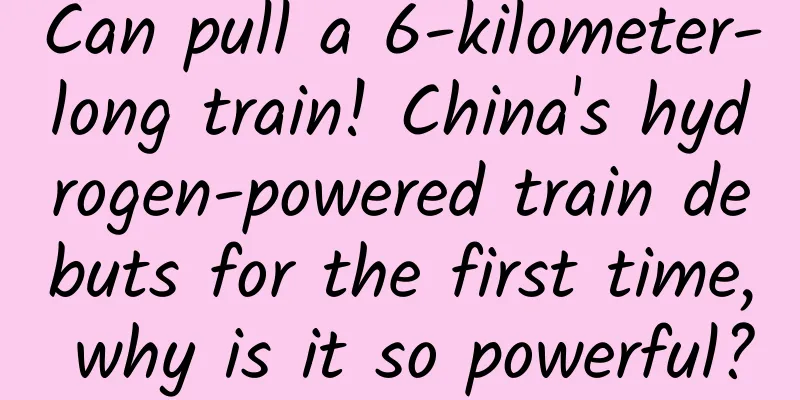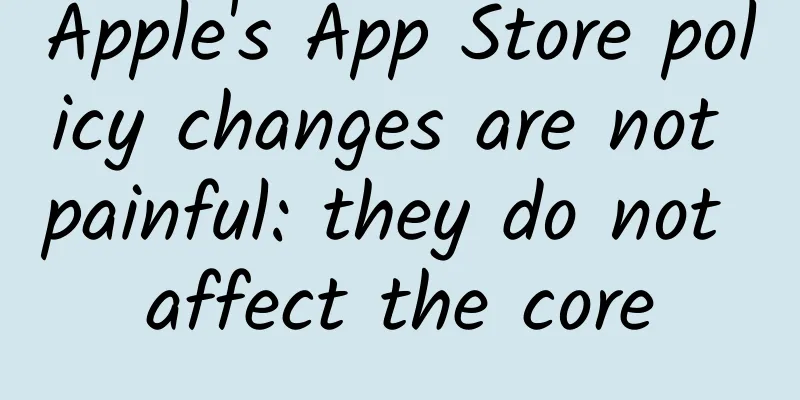The advent of the era of "technological renaissance" has led to the final polarization of BAT

|
The Wuzhen World Internet Conference is an officially endorsed "Huashan Sword Contest". Each giant took the stage to describe the future they saw. From the speeches of China's three richest people, "two Ma and one Li", it can be seen that the positioning of the three companies has become increasingly differentiated and no longer so parallel. 1. The 4.0 Industrial Revolution kicks off and the era of “technological renaissance” arrives The Internet giants listed in China in 2014 are concentrated in the e-commerce field, including Alibaba, JD.com and Jumei. Although Alibaba has become the world's largest e-commerce company, new concepts such as O2O are popular in China, and some people say that China has taken the lead in mobile Internet business due to its demographic dividend, the future of technology is still too bleak. While Chinese people are buying and selling cheap goods on Taobao and are complacent about the retail consumption era, mainstream European and American companies are vigorously promoting the Industrial Revolution 4.0, and the development of smart hardware is also in full swing. Mobile Internet is no longer the focus of attention. "With the listing of Alibaba , the climax of China's Internet circulation, consumption, retail and communication industries has arrived and is about to end." Cai Hongping, chairman of Deutsche Bank's Asia Pacific Investment Banking Department, said in a public speech that when the unique "non-reform dividend" is exhausted, what Chinese companies should reflect on today is how to catch up with the emerging wave of the Industrial Revolution 4.0. Industrial Revolution 4.0 describes that after the three industrial revolutions of steam engine application, large-scale production and electronic information technology, mankind will usher in the fourth industrial revolution based on information-physical fusion system (CPS), characterized by highly digitalized production, networking and machine self-organization. "Industry 4.0" means intelligent production, which makes full use of new technologies such as the Internet and 3D printing, Internet of Things, intelligent manufacturing and composite materials, and cooperates with technologies such as big data and artificial intelligence to weave together production materials, smart factories, logistics distribution and consumers. With the advent of Industry 4.0, consumers no longer need electronic channels such as Taobao, but will directly connect with manufacturers to obtain cheaper goods. After the maturity of mobile Internet, the Internet and traditional industries are fully integrated, online and offline are seamlessly integrated, information technology and biotechnology, energy technology, and automation technology are cross-border integrated, and the decentralized and sharing economy based on the Internet is becoming the mainstream. "Artificial intelligence" is developing rapidly, and after machines have the ability to learn from humans, they will continue to replace human tasks, thinking, and positions... As Ray Kurzweil, author of The Singularity Is Near, describes, the world will soon reach a "singularity" where the human brain is connected to the cloud, machines surpass humans, and new biotechnology allows humans to achieve immortality. A large wave of emerging technologies is emerging exponentially, and technology is once again changing the world after steam engines, electricity, and information technology. 2. BAT has gone from being omnipotent to being differentiated and moving towards three polarizations In the article "Looking at Internet Services from the Expansion Path of Giants: Centered but Boundless" published by Titanium Media, my previous view was that BAT is infiltrating into their respective territories. The three single-business Internet companies with very clear attributes are transforming into comprehensive Internet entities that can do everything and are involved in every field of opportunity. In the future, the three will engage in fierce battles in business, investment, talent, etc., and their businesses have no boundaries. Looking back a year later, BAT has consciously or unconsciously given itself distinct labels in its respective development. Although many of the things they are doing are very similar, such as integrating with traditional industries, crazy investment and mergers and acquisitions, calling for "connection", and laying out new businesses that may explode, such as Internet finance, big data, and smart hardware, they have promised themselves completely different futures. Baidu: Technology labels bet on the era of artificial intelligence The topic that Robin Li mentioned most in his speech at the Wuzhen Summit was technological innovation. Robin Li believes that this is a magical era, just like the Einstein era when more than 90 young physicists emerged and the whole world was enlightened. Now is the Internet era, which provides many opportunities for companies of Baidu 's size. With many opportunities, Baidu chose to bet heavily on future-oriented technologies, especially artificial intelligence and big data technologies. Of course, investment in technology is never as significant as trading. Baidu's hundreds of millions of technology investments may not pay off immediately, but people's focus in the short term often underestimates the changes that technology brings to society and the speed of technological development, such as gene sequencing. "The accumulation of technology is a process from quantitative change to qualitative change. If we ignore the process of quantitative change, then the process of qualitative change will be caught off guard." Whether from Li Yanhong's speech or what Baidu is doing and saying, technology is the main direction and a major label of its efforts. The investment in new technologies with artificial intelligence as the core makes Baidu more advantageous when the singularity arrives. Industry 4.0 requires intelligent manufacturing and mining user needs through big data. Smart hardware requires cloud computing and machine learning capabilities. The post-mobile Internet era requires LBS to map the physical world... All of these are Baidu's advantages. As Li Yanhong emphasized at the World Internet Conference, Baidu's technology investment in the future is not only for Baidu to benefit from it, but more for the hope that all mankind and society will benefit from the development of technology. If the technological renaissance mentioned above is true and the singularity of the intelligent era is about to arrive, then Baidu has made the right bet - devoting itself to deep technological development and sticking to its technological philosophy, which seems to have, to some extent, put it on the vanguard of Industry 4.0. What Baidu needs to do now is to stay strong and not be bothered by external noise before the correctness of this path is verified decades later. After all, this era requires us to live in the present. Tencent: Connection tags weaken social and entertainment attributes Tencent is essentially a social company - so its benchmark is often Facebook . But its core business model is entertainment, especially interactive entertainment, and value-added and advertising are the outside. Since the world is ushering in a technological renaissance and entering the post-mobile Internet era, Tencent is naturally unwilling to be just an entertainment or social company. Ma Huateng first clearly proposed the concept of "connector" in his speech. After connecting people, Tencent will try to connect people with things, things with things, and people with services. For example, some WeChat public platforms have connected people with services. Baidu is strong in connecting people and services, traditional industries and the Internet, Alibaba is strong in connecting businesses and consumers, and Tencent's core capability may still be connecting people with each other. This is its strongest moat. If all its businesses are carried out around social relationship chains, Tencent will still have the opportunity to enter any new business that Baidu and Alibaba try in the future. Ali: Business labels live in the present and work hard to make money Ma Huateng and Li Yanhong talked a lot about the future, but Jack Ma's 40-minute speech was completely different. He did not talk about the future, but gave everyone some "dry goods" that everyone likes to hear, such as how companies should succeed and how entrepreneurs can make money. There is no doubt that Jack Ma has the best eloquence and knows what everyone likes to hear. But relatively speaking, it is still less romantic and more realistic. Many of Jack Ma's ideas are at odds with Robin Li's. Jack Ma believes that we should pay close attention to "whether customers use the product" and "when we make any product or service, we should ask a question: do your customers use it?" If we follow this logic, it is unlikely that Baidu will invest heavily in new technologies that are not yet popular and difficult to productize and commercialize. After all, Jack Ma is a businessman, while the shadow of engineers behind Pony Ma and Robin Li is still there. Alibaba is the most profitable Internet company. Through a series of investments and mergers, it quickly made up for its mistakes and eventually became the Chinese Internet company with the largest market value. Solving the problem of integrity and reconstructing business civilization are Alibaba's core tasks. If all the Internet in China is aimed at retail consumption, with the mentality of buying cheap goods and seeking convenience, our future will definitely be full of crises. Of course, I am not denying it here, but after this step, what Chinese giant companies should see and pursue is a longer-term way of survival. From Alibaba's current point of view, as for new technologies such as artificial intelligence, it rarely mentions them to the outside world. Compared with the "big thing" of making money, these technologies are too far away, require a lot of patience, and are not its "interest". Looking around the world, different technology companies also have completely different attitudes towards the future. Google is more willing to explore the intelligent future. Larry Page has always defined Google as an artificial intelligence company; Amazon has taken a step forward in smart warehouses, drone delivery, and predictive delivery technology; Apple is also constantly innovating its products. These three major technology companies have a common label, which is that they attach great importance to technological innovation. As the era of technological renaissance arrives, companies that have been prepared will have more "harvests". As a winner of Toutiao's Qingyun Plan and Baijiahao's Bai+ Plan, the 2019 Baidu Digital Author of the Year, the Baijiahao's Most Popular Author in the Technology Field, the 2019 Sogou Technology and Culture Author, and the 2021 Baijiahao Quarterly Influential Creator, he has won many awards, including the 2013 Sohu Best Industry Media Person, the 2015 China New Media Entrepreneurship Competition Beijing Third Place, the 2015 Guangmang Experience Award, the 2015 China New Media Entrepreneurship Competition Finals Third Place, and the 2018 Baidu Dynamic Annual Powerful Celebrity. |
<<: Full text of Li Ruigang's stunning speech: Subversion and Reshaping
>>: Qualcomm's opportunity to enter the server chip market
Recommend
Huawei Honor and Xiaomi are entering the US market: How difficult is it to survive?
Recently, as domestic mobile phone shipments have...
Deloitte: Global Outsourcing Survey 2024
Our 2024 survey examining the changing landscape ...
"Taiwan-Internet linkage" changes the situation and creates a TV program ecosystem
In recent years, video websites have been claimin...
How to create an Xcode plugin
[[163627]] Original text: How To Create an Xcode ...
Those who desperately promote 5G mobile phones are either stupid or evil.
These days, I don’t know what’s going on, but I’v...
Bring KTV home, "Tianlai Karaoke" TV version of passionate experience
Nowadays, more and more young people may choose t...
Android Wear is also about to be upgraded to 5.0, and the watch face display mode is turned on
In this era of personalization, you may also thin...
Ma Bingbing Education MCA Algorithm High Frequency Questions Explanation
Course Catalog ├──If you don’t master the basic da...
Promotion account structure diagram, how to build a promotion account structure?
The account structure of search promotion consist...
Can a refrigeration and range hood set priced at 30,000 yuan help Fangtai, which is under pressure of hundreds of billions, to calm down?
What new stories can range hoods tell? There is a...
Android Mirror App A programmable mirror
Let’s first take a look at the mirror in my home ...
Only 3 scientists in the world! Chinese scientists won this international award
Recently, at the Eurokarst2022 conference at the ...
Is it difficult to write brand copywriting for the Dragon Boat Festival? Share 15 for your reference!
The Zongzi Festival on May 5th is coming soon. Th...
4 traffic depressions for user growth in 2021!
As the title suggests, let me give the conclusion...
There is an "HDR" mode when taking photos. How does it become a "magic tool" for photography?
As mobile phone and camera technology continues t...









